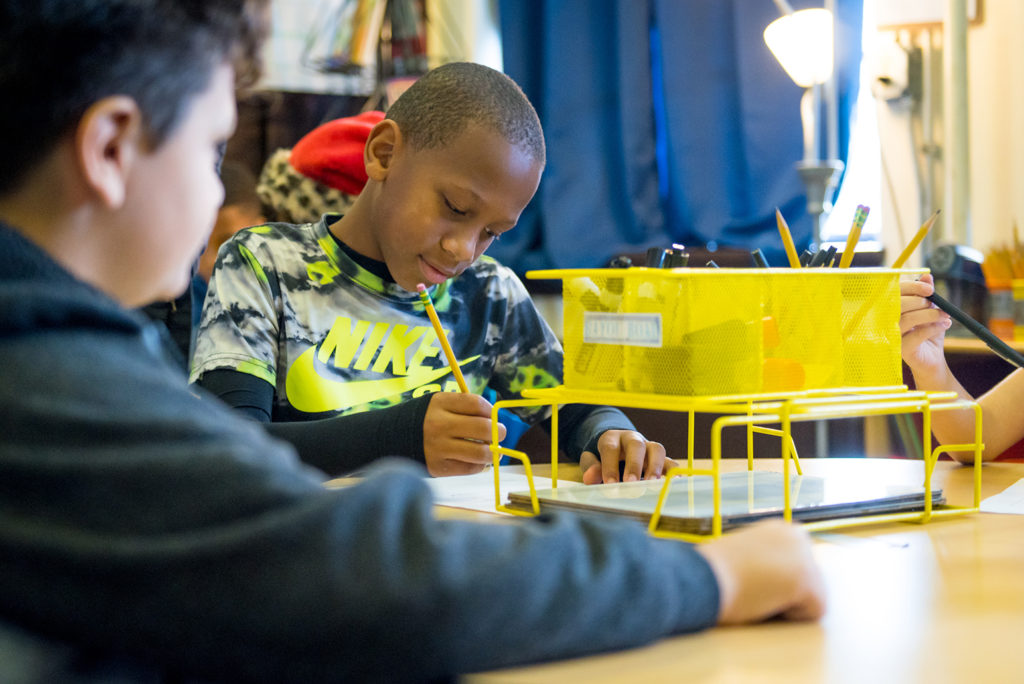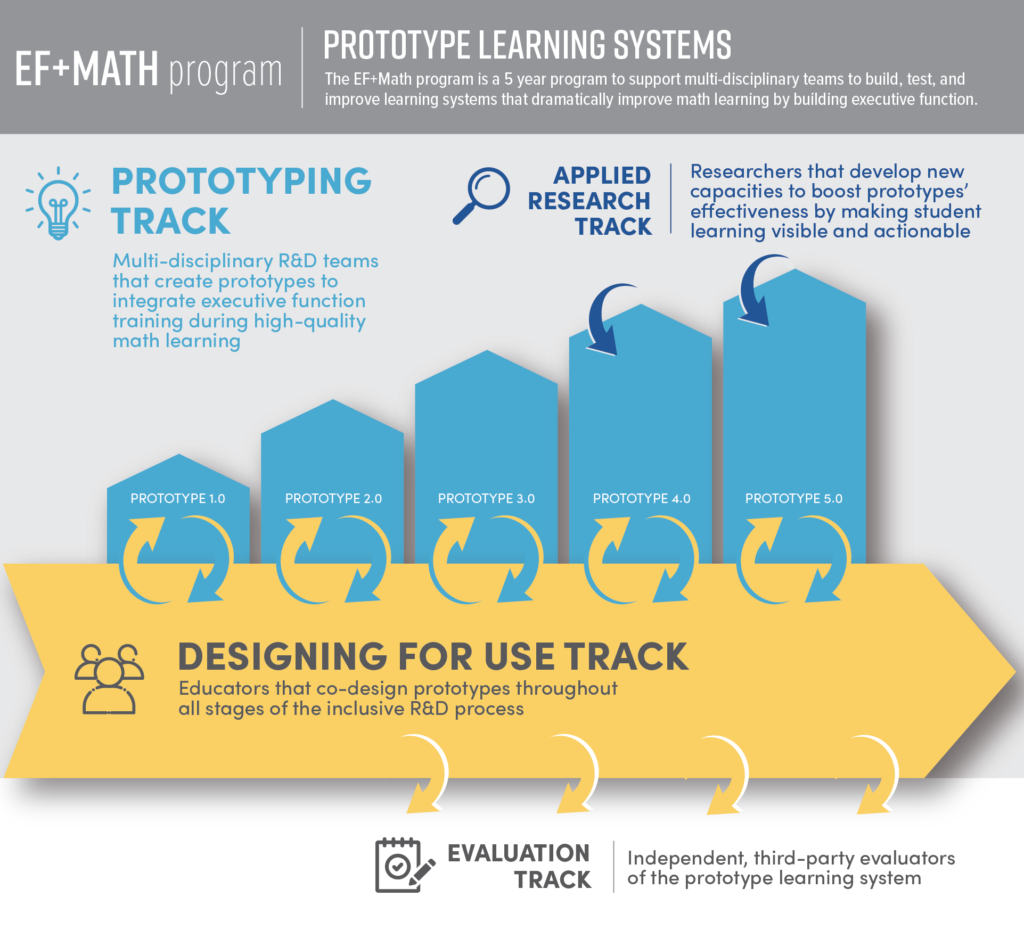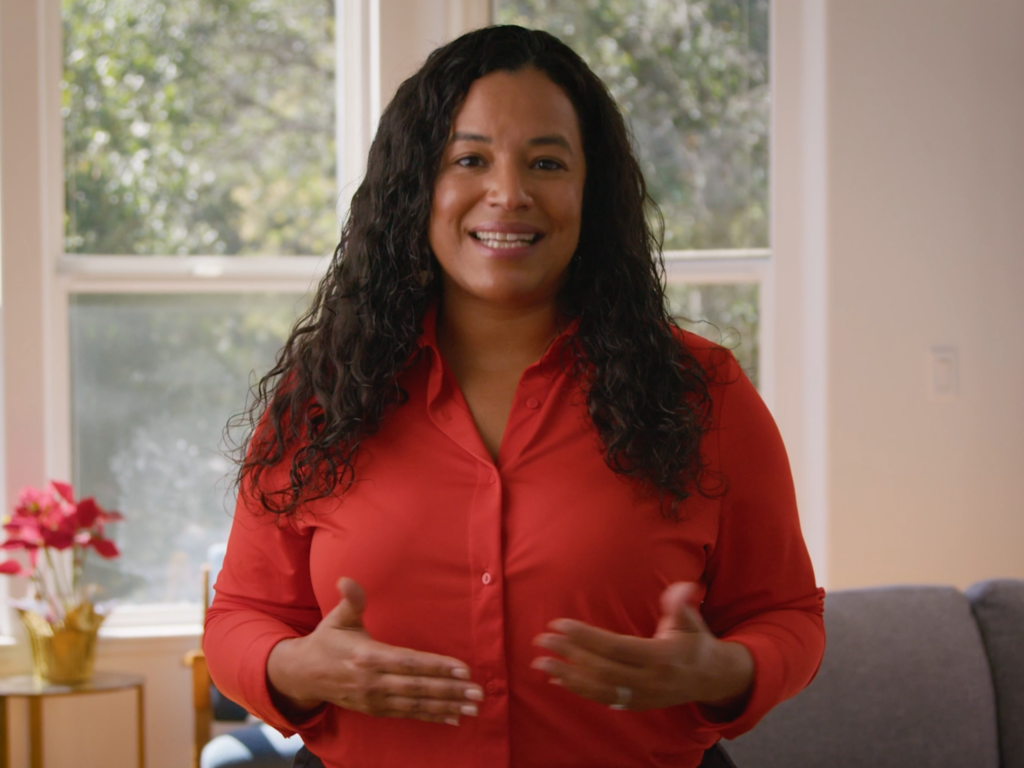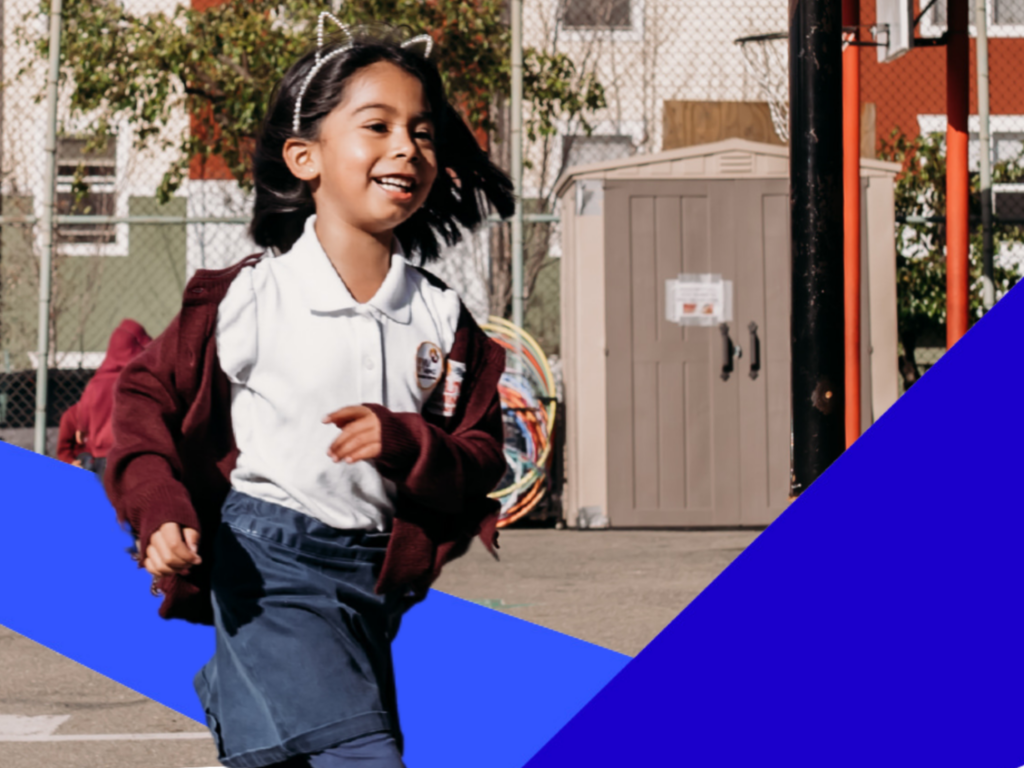Announcing $9 million in funding for bold ideas to integrate executive function and math
By Melina Uncapher, Ph.D., Director, EF+Math Program

I’m on a mission. I want to challenge the way people think about what students’ minds are capable of doing. The truth is, all students are powerful learners and students from all backgrounds are equally capable of success in math.
That’s why today I’m thrilled to join with my colleagues at NewSchools to announce the EF+Math Program, a five-year initiative to fund bold, new approaches that integrate executive function and math skills. We’re all familiar with math, but executive function is less familiar. It describes skills every teacher and parent knows are critical to how we think — skills that give us agency over our thoughts, attention, emotions, and behavior. Executive functions allow us to take control of our learning and our lives, and they may be the skills that can supercharge math learning.
After 18 years of studying how the mind learns, with the last four spent inside classrooms, I’ve seen that everyone’s mind is learning something every second of every day. So, imagine what might happen if we were able to provide every child the right opportunities to learn challenging math. What if we really believed in every student and had high expectations for them because we understood how powerful their learning mind is?
Inside each student lies the foundations to learn and master anything. But somehow this message does not get taught to our young learners, and that’s why I am so frustrated every time I hear someone say “I’m just not good at math.” Or even worse, “Those kids just aren’t good at math.”
I want to shout it from the rooftops: That’s just not how the mind works! It can sap a child’s spirit when they start to believe it. It can become internalized as a part of their identity, and shape who they believe they are.
I want every child to know their innate abilities, know how to use them to take control of their own learning, and be given every opportunity to learn anything, including rigorous math.
Our goal with the EF+Math Program is to dramatically improve math outcomes for students in grades 3-8, with a particular focus on students who have traditionally been underserved. Why? First, because these students have powerful minds that deserve to be challenged with the best resources and opportunities to learn rigorous math. Also because success in math is critical to many factors for success in young adulthood, and executive function is foundational for learning math.
EF+Math is not about fixing students because they’re not broken. In fact, their minds are unstoppable, and this program is about making sure they know this and giving them ways to take control of their own learning. This work equity-focused, research-informed and designed with educators at the center.
I couldn’t be more thrilled about this work, because I’ve seen the power of the mind. I’ve seen firsthand that children’s minds are learning every minute of every day. The engine that drives all that learning is executive functions, which include the ability to focus attention and ignore distractions, keep ideas in mind and think flexibly. These skills are at the core of how we learn many subjects, including math. And like many other skills: they grow with practice and need to be exercised in many contexts.
During the 512 school visits I made over those four years and deep discussions with educators, I was struck by how much wisdom lays untapped: educators have tremendous expertise that is not being communicated to researchers, so researchers can ask better questions and create better methods. Likewise, there is more than a century of insight from the science of learning that is not being systematically communicated to educators. To begin to bridge those worlds, I started teaching my Science of Learning course to in-service teachers, which allowed me to work with tens of thousands of educators in schools around the world, discussing how students learn. It allowed me to see how theory meets practice, and gave me a richer understanding of the types of challenges that have stumped both educators and researchers.
We know all minds are powerful. We know what’s possible. And yet only 40% of fourth graders in the U.S. are proficient in math, with the percentages getting worse in later grades. It’s important to underscore this is NOT a failure of our students; they have all the assets inside them to learn anything. We’re not yet providing equitable opportunities so students can use those assets to learn challenging math. I am personally committed to increasing those numbers because I know the tremendous power inside all students.
My lived experience, coupled with this commitment, led to a different way of thinking about how to approach the challenge of our students not achieving what they’re fully capable of. To make a profound difference, we need the best thinking from everyone, together. We need the teachers and researchers to join forces to co-create evidence-based ideas that can work in real-world classrooms, and then we need designers and developers who can turn these ideas into action. In other words, we need multidisciplinary teams working together, thinking of innovative ideas, co-creating possible solutions, piloting and improving those solutions in real-world classrooms, and rigorously evaluating their effectiveness.
The EF+Math Program is a new initiative to fund bold approaches through an inclusive discovery and development process that promise to dramatically increase positive math outcomes for students in grades 3-8.
We will: (1) fund teams to build, pilot and improve these new approaches in real-world classrooms; (2) create opportunities for the teams to form and create ideas together; and (3) ensure educators are not only included in the discovery and development process, but have elevated roles. We will actively coordinate the work to ensure equity and privacy are built into the core design, approaches are grounded in rigorous science of learning research, and approaches are useful and usable to teachers and students.
What a ‘new approach’ might be is intentionally open-ended so we can invoke the most innovative, boldest ideas from everyone. We hope you will think big and imagine an ideal future of education (in say 20 years), and then think about what you would build to realize that future now. Please see the figure below and the Program Tracks Overview to see the four tracks of work that make up the program, and how they fit together.
Right now, we have funding available in three areas:
- For educators: The Designing for Use Track is the way we prioritize educators as central to the work. This track incorporates two groups. The Educator Leadership Council works with our team to develop our co-design model, helps proposers shape ideas and will be a part of the team to review proposed solutions. District Co-Design Partners are fully embedded in the R&D process, co-designing solutions that respect learner assets and growth opportunities, are adaptable, and integrate with existing classroom practices.
- For researchers & developers: The Prototyping Track funds teams of researchers and developers to build, pilot, and improve teacher- and student-centered learning systems that embed executive function training within high-quality math content and instruction. There will be a specific focus on building students’ conceptual foundations in math and complex problem solving. All teams in this track must be multidisciplinary. If you are an individual who would like to join a team but needs to be connected with potential partners, we offer Facilitated Team Development [LINK] to help form partnerships.
- For researchers: The Applied Research Track invests in innovative new ways to make learning visible and actionable in real time. The goal of this track is to develop new capabilities that can be integrated into the learning systems developed under the Prototyping track.
Please visit our website for details about the deadlines and application process for each track.
I am eagerly anticipating your big ideas about how might we change what’s possible together.



